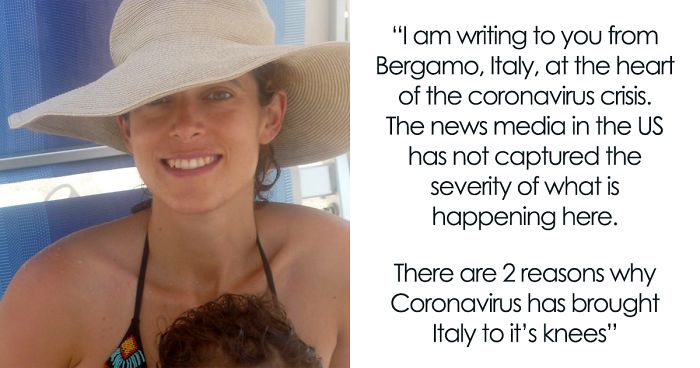
American Woman Living In Italy Writes Down A Coronavirus Warning To Americans And It Goes Viral
For about two weeks, Cristina Higgins, an American who lives in Italy, hasn’t traveled further from her apartment building than the driveway. She begins her days at the breakfast table with her husband and three children. Then, the kids go online to do their schoolwork from home. Throughout the day, Cristina looks at the news for updates on the coronavirus and checks in on her friends. The family usually spend their evenings by sitting down to play Monopoly.
“We have friends who are getting sick. It’s very stressful,” Higgins told NBC News from her home in Bergamo where she, just like everyone else, is under government-ordered home isolation even though she and her family are not sick. “I am nauseous all day long because every time I look at the news or talk to somebody else, something terrible has happened. And I don’t know what’s going to happen next.”
Documenting her thoughts, Cristina made a Facebook post where she explained what her experience has been like. Her story soon went viral, generating over 186,000 reactions, 116,000 comments, and 915,000 shares.
Image credits: cristina.higgins.7
Image credits: cristina.higgins.7
Recently, Italy restricted movement and closed all stores except for pharmacies, groceries, and other essential services to fight the spread of the virus. But it’s a question of whether they did it in time. For example, Lombardy, the country’s wealthiest region, boasts a health-care system as proficient as any in Western Europe. But The Washington Post reports that its facilities are still forced to delay surgeries, stop HIV treatments, convert regular hospital space into COVID-19 units, and depend on exhausted doctors and nurses in order to keep up.
“This is a war,” said Massimo Puoti, the head of infectious medicine at Milan’s Niguarda hospital, one of the largest in Lombardy. According to him, the goal — just like Christina said — is to limit infections, stave off the epidemic and learn more about the enemy. “We need time.”
However, as difficult as the situation is, the country still manages to get by. Gabriel Gatehouse of BBC Newsnight talked with a senior ICU doctor in Milan and he learned that even though around 10-15% of people who are infected need intensive care units, they’re coping at the moment, and they’re still able to bring into ICU departments everyone who needs them.
This video provides a coherent breakdown of the situation in Italy
While facing the virus, people are reminding one another how important official information as well as staying calm and safe really is
People asking "where are the facts" are sooooooo disconnected from the world, it's unbelievable. HERE are the facts. My company has made us work from home for a long time now, and the streets of a world metropolis are kinda empty. This is not fear mongering, it's a wake up call. Be cautious and don't panic, and we can overcome this crisis.
By facts they are asking for information about the virus. Making you work at home is not they want as it a reaction which people don't always agree with
Load More Replies...I normally don't post on here, but as someone with a background in epidemiology, I thought my thoughts might help. In looking at the numbers, please don't forget that there are likely hundreds of people in this country who have coronavirus without realizing it due to milder symptoms. For instance in KS an elderly man with existing respiratory conditions died in a nursing home but so far is only one of 4 confirmed cases in KS, and the other 3 cases never were in contact with the 4th patient. They self-isolated and to date, public health officials in the state have not found that they transmitted the virus to anyone else. Who gave the elderly man the virus since he couldn't leave? Someone who had the virus, didn't know it, and visited his nursing home, because the virus didn't present in a severe manner for them. If we actually knew the true extent of the cases in the US that fatality rate would most likely drop to the levels we're used to seeing in other flu strains. Panic doesn't help.
Flattening the curve certainly helps; that's something Italy was not able to do, and it certainly was one of the largest factors in overloading their public health infrastructure. That's why responsible social distancing, hand-washing, and self-isolation measures if you think you're sick, are useful and will continue to make sure our hospitals are not overloaded with cases to the point where that fatality rate increases solely because of hospital logistics.
Load More Replies...The facts: Yes, most people who get it don't show symptoms. But also: 10% need ICU care. And: Because NOBODY is vaccinated, and the 2 week period of no symptoms, it spreads much more easily than seasonal flu. It will spread - it's only a matter of time. But if we can slow down that spread, then we have a chance of not overwhelming the health care system. It would be good if doctors could still perform surgeries, cancer patients could still get their chemo, and people could still go see their doctor about that lump that's appeared... right? So no, don't panic. Buy groceries when you need to. Don't buy out all the masks and antibacterial soap. But stay 1m away from everyone when possible, stop hugging your friends, wash your hands often and properly, try not to touch your mouth or eyes, avoid big events & crowds at all costs, and try to go out less. Switch meetings to zoom. Just be prudent, all right? What possible risk is there in deciding to be prudent?
People asking "where are the facts" are sooooooo disconnected from the world, it's unbelievable. HERE are the facts. My company has made us work from home for a long time now, and the streets of a world metropolis are kinda empty. This is not fear mongering, it's a wake up call. Be cautious and don't panic, and we can overcome this crisis.
By facts they are asking for information about the virus. Making you work at home is not they want as it a reaction which people don't always agree with
Load More Replies...I normally don't post on here, but as someone with a background in epidemiology, I thought my thoughts might help. In looking at the numbers, please don't forget that there are likely hundreds of people in this country who have coronavirus without realizing it due to milder symptoms. For instance in KS an elderly man with existing respiratory conditions died in a nursing home but so far is only one of 4 confirmed cases in KS, and the other 3 cases never were in contact with the 4th patient. They self-isolated and to date, public health officials in the state have not found that they transmitted the virus to anyone else. Who gave the elderly man the virus since he couldn't leave? Someone who had the virus, didn't know it, and visited his nursing home, because the virus didn't present in a severe manner for them. If we actually knew the true extent of the cases in the US that fatality rate would most likely drop to the levels we're used to seeing in other flu strains. Panic doesn't help.
Flattening the curve certainly helps; that's something Italy was not able to do, and it certainly was one of the largest factors in overloading their public health infrastructure. That's why responsible social distancing, hand-washing, and self-isolation measures if you think you're sick, are useful and will continue to make sure our hospitals are not overloaded with cases to the point where that fatality rate increases solely because of hospital logistics.
Load More Replies...The facts: Yes, most people who get it don't show symptoms. But also: 10% need ICU care. And: Because NOBODY is vaccinated, and the 2 week period of no symptoms, it spreads much more easily than seasonal flu. It will spread - it's only a matter of time. But if we can slow down that spread, then we have a chance of not overwhelming the health care system. It would be good if doctors could still perform surgeries, cancer patients could still get their chemo, and people could still go see their doctor about that lump that's appeared... right? So no, don't panic. Buy groceries when you need to. Don't buy out all the masks and antibacterial soap. But stay 1m away from everyone when possible, stop hugging your friends, wash your hands often and properly, try not to touch your mouth or eyes, avoid big events & crowds at all costs, and try to go out less. Switch meetings to zoom. Just be prudent, all right? What possible risk is there in deciding to be prudent?

 Dark Mode
Dark Mode 

 No fees, cancel anytime
No fees, cancel anytime 






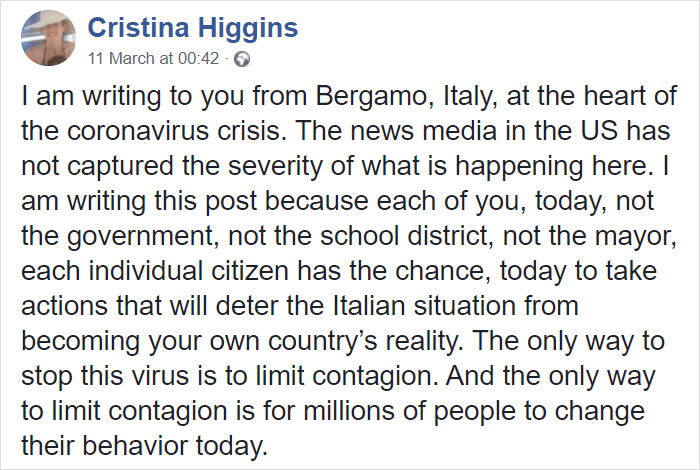


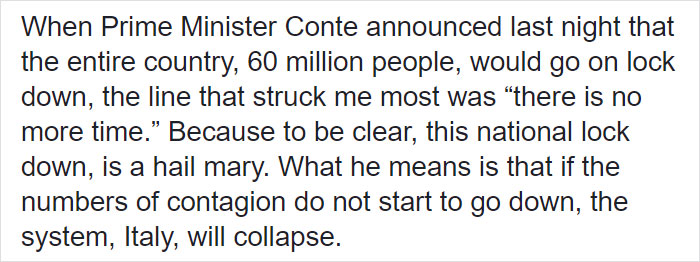
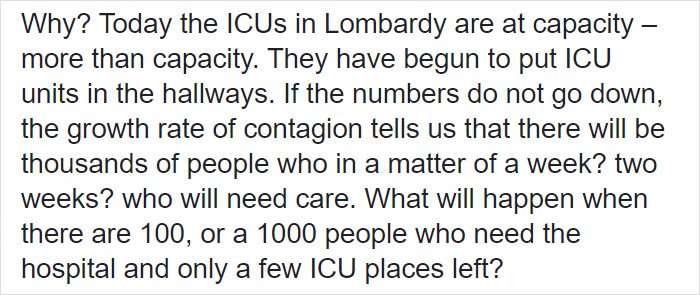



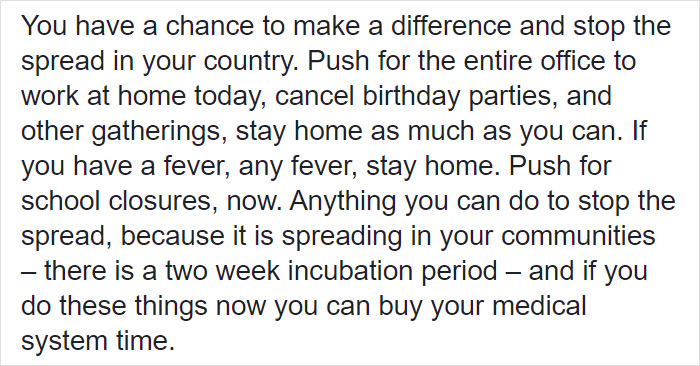
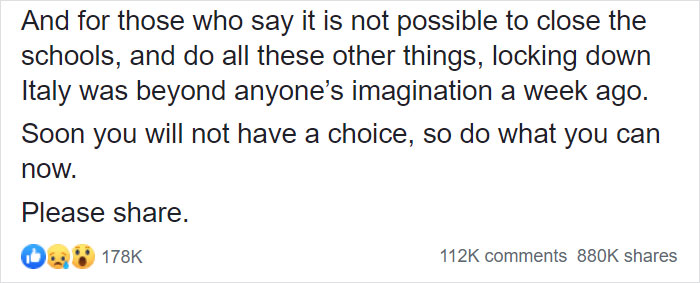
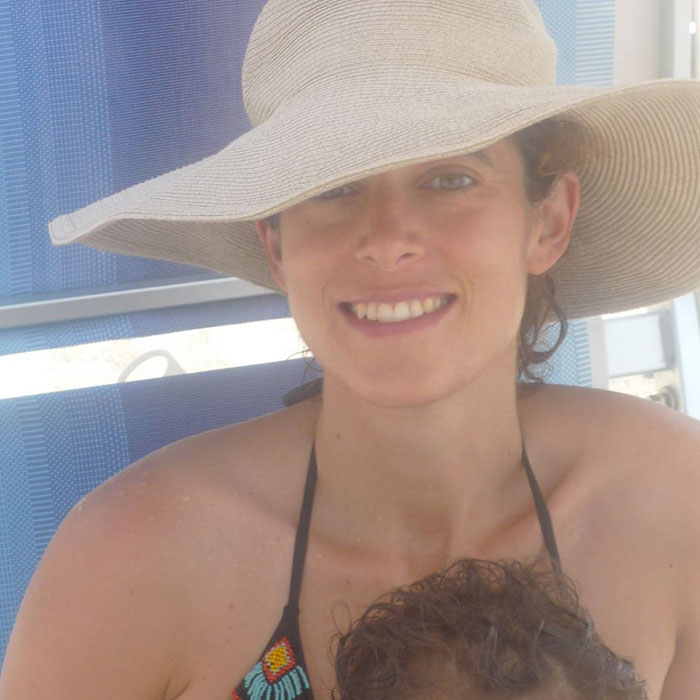
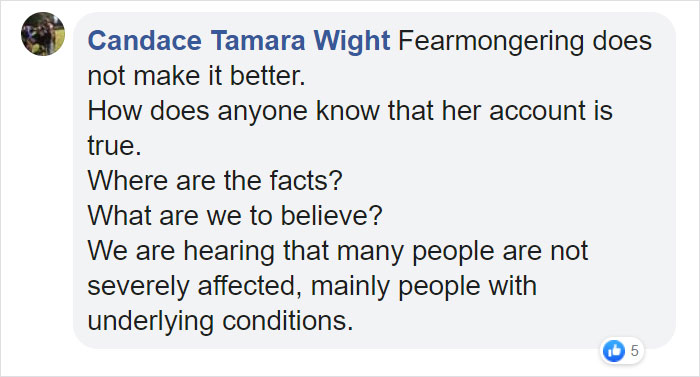

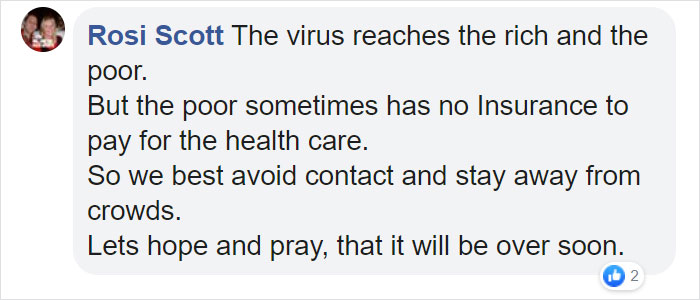


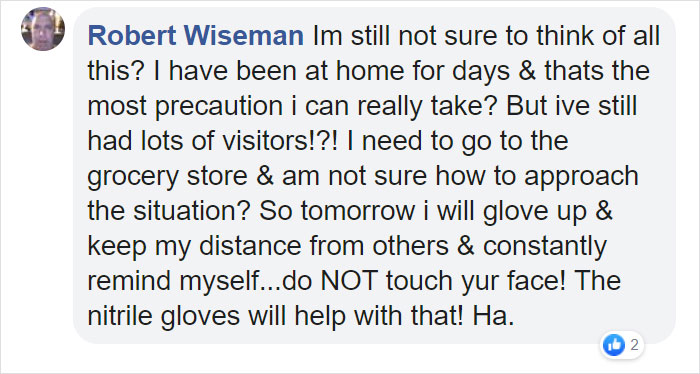
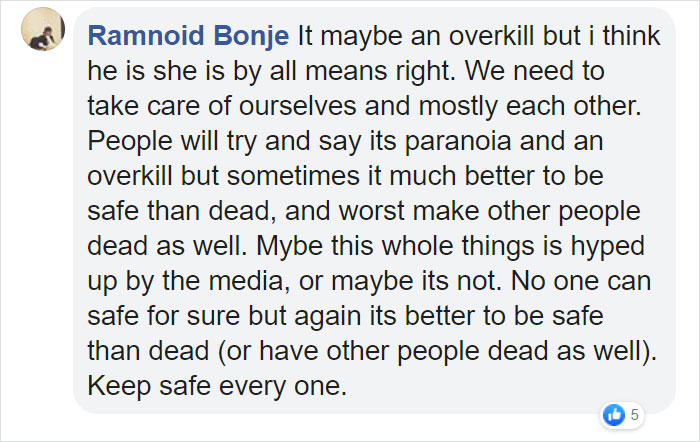











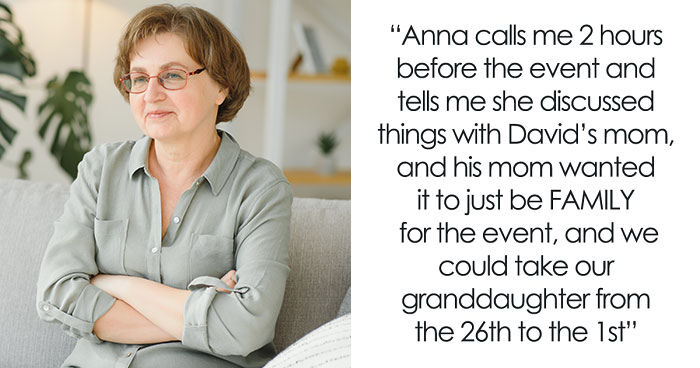
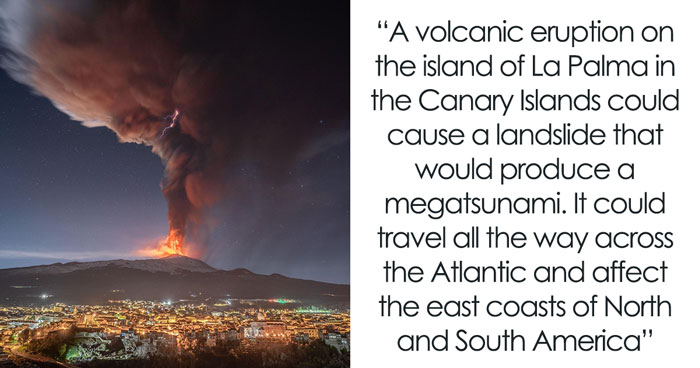


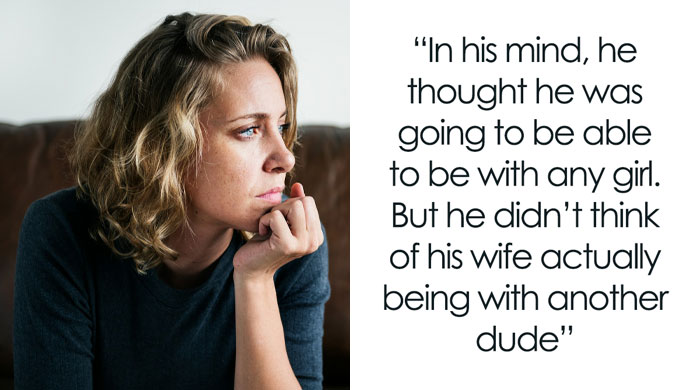




























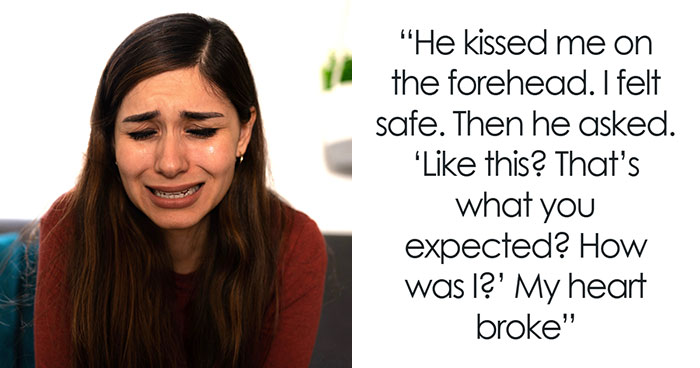

140
89